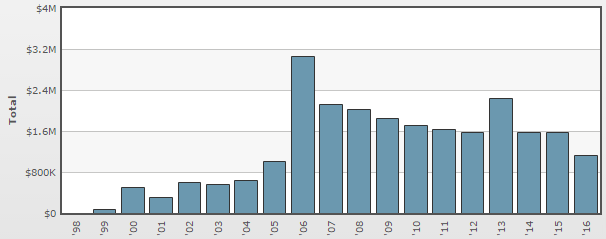eBay PESTEL Analysis
The acronym behind the strategic analytical tool PESTEL stands for political, economic, social, technological, environmental and legal factors. eBay PESTEL analysis involves an analysis of potential effect of above factors on the volume of revenues and growth prospects of the business. It has to be specified that the range of factors covered within PESTEL framework are the external factors for the business and the company has little or no impact on these factors.
Political Factors
eBay’s financial performance and growth prospects can be affected by a range of political factors that include political stability in the market, the levels of bureaucracy and corruptions in the country, activities of trade unions and home market lobbying groups and others. In 2015, eBay has been caught into a political controversy and the company has been accused of “collaborating with hundreds of overseas retailers to defraud the taxman of millions of pounds every day”[1]. Specifically, non-EU sellers on eBay and Amazon were not paying VAT tax in the UK or elsewhere, causing the loss of millions of pounds annually.
In another political case in 2015, amid an intensifying national debate over the use of the Confederate flag, eBay along with Walmart, Amazon and Sears announced that they will stop selling the controversial flag[2]. This is due to the association of the Confederate flag with slave-holding practices in the US and willingness of the business to avoid offending customers segment who are sensitive towards the issue.
As it is illustrated in figure below, eBay has a solid annual lobbying budget to pursue its political agenda to a certain extent and to contribute to the creation of a political environment that is favorable for the business.
Annual Lobbying by eBay Inc.[3]
Economic Factors
There are many economic factors that may affect eBay revenues and growth prospects directly, as well as, indirectly. The exchange rate between USD and other currencies is a major factor affecting eBay’s reported profits. For example, in 2015 revenues reached USD8.6 billion, growing 5% annually on an FX-Neutral basis and down 2% on an as-reported basis reflecting strong USD.[4]
A change in inflation rate is another economic factor with implications on eBay’s performance in global markets. MercadoLibre is New York exchange-listed online marketplace based in Venezuela and eBay owns an 18 percent stake at the company. While MercadoLibre reports rapid growth in local-currency terms, the vast majority of this is due to runaway inflation. Specifically, in the fourth quarter of 2014, MercadoLibre reported revenue increase of 104 percent in its Venezuelan market. However, taking into account the fact that units sold rose a modest 12 percent, most of the revenue increase was driven by massive price hikes.[5]
Apart from above, eBay is affected by an additional set of economic factors such as interest and tax rates, cost of labour, the rate of unemployment, and monetary and fiscal policies of governments.
eBay Inc. Report contains the full discussion of eBay PESTEL analysis. The report also illustrates the application of the major analytical strategic frameworks in business studies such as SWOT, Porter’s Five Forces, Value Chain analysis and McKinsey 7S Model on eBay. Moreover, the report contains analysis of eBay’s marketing strategy, its leadership and organizational structure and discusses the issues of corporate social responsibility.


